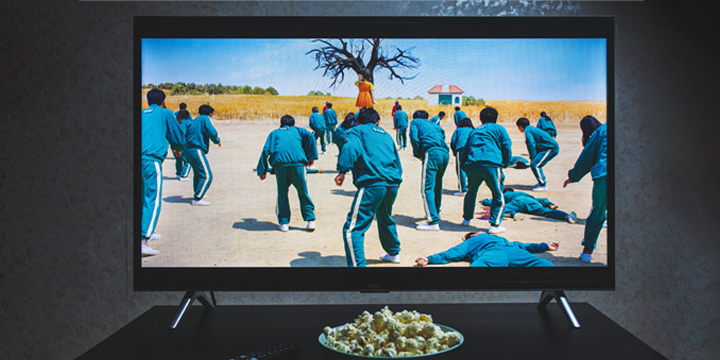#1 It’s important to have a strategy
How does a good game of tug of war relate to learning? Strategy, of course. When Oh Il-Nam (the old man) led Seong Gi-hun (our protagonist) and his team to victory on that brutal tug of war platform, he did so with clear direction and a robust strategy that left the opposing team tumbling down into…well, let’s gloss over that.
With a bit of careful preparation, revising for the even the toughest exam can be a cinch – you just need a plan of action, some goals and – the hardest part – a bit of motivation. Which leads us nicely onto #2.
#2 No motivation? Find a motivator!
Learning is easy when you’re feeling inspired but can feel like a complete brain melt when you’re not. So, if you’re sat at your desk, scrolling through textbooks with the enthusiasm of a potato, it’s time to whip out the rewards.
It wasn’t the thrill of the game that kept our dysfunctional Squid Game family competing, it was the 45.6 billion Won (a tasty £28.2 million) that had them playing marbles to the death! Of course, we don’t all have a giant glass piggy bank full of money to motivate us, but you can set yourself some easy rewards to spur you on when you hit your study milestones – maybe an hour of TV, an amazing snack or going for a jog around the block. Whatever floats your boat.
Remember, you can easily pick up where you left off in your eTextbooks by using Kortext’s bookmarking tool!
#3 Connect with the experts
Throughout Squid Game, Il-Nam shared his wisdom with those who would listen. Only at the very end did we realise he was the mastermind behind the whole thing! Arguably the only reason Seong Gi-hun made it to Round 5 (the glass stepping-stone bridge) at all was because of the old man.
The lesson here? Listen to the wise and keep them close. You only get a finite amount of time with your lecturers at university – make the most of their knowledge, they are the experts, after all. And remember, with Kortext’s group collaboration tools, you can connect with your peers and academics and share ideas directly through your eTextbooks, so staying in touch is super easy.
#4 Time management – it’s about the journey, not the deadline
A deadline’s looming. Time is running out. But it’s okay, because you know that assignment will only take a day to write. What you don’t expect – even though you’ve done this time and time again – is the sheer panic that comes along with it! When the Squid Game players stepped out for Round 1 – Red Light, Green Light – the players knew nothing of the game’s ruthlessness. For them, it was all about running from the start to the finish line before time ran out. It quickly became apparent that for those who went too fast and lost their footing, the game was up.
The same goes for learning. Time management is key – that means setting yourself achievable goals and balancing study time with you time. To put it in Squid Game terms, it’s about running short distances and not slipping in the sand.
#5 Learning is about trial and error
At the end of Squid Game Round 2 – AKA the honeycomb game – many players made it to the next round by adopting Gi-hun’s innovative honeycomb-licking technique. The lesson? We learn from the old and develop the new. If you think you can do something better, try! That’s the only way to learn, innovate and move things forward.
In a research environment, this attitude is key.

#6 Listen carefully
If there’s one thing we can learn from the glass stepping-stone bridge, it’s that paying attention is important! It only takes one distracted moment to miss the point of a lecture, a book, a study group.
If Sae-byeok had not been so kind as to tell Gi-hun which glass platform she jumped from, it could have been a much darker end for Gi-hun.
#7 Check your sources
Ali Adbul, player 199, was beloved by all of us, especially since saving Gi-hun in Round 1 (Red Light, Green Light), but he met a sticky end when Cho Sang-woo, one of the game’s villians, secretly swapped his bag of marbles for rocks. What did he do wrong? He didn’t check the bag!
A key part of writing up great research to achieve those higher grades is checking your information and making sure it comes from a reputable source. Always check the bag!
With Kortext, you can export references directly from your eTextbooks into reference management software like Refworks, making it easy to keep track of your sources.






